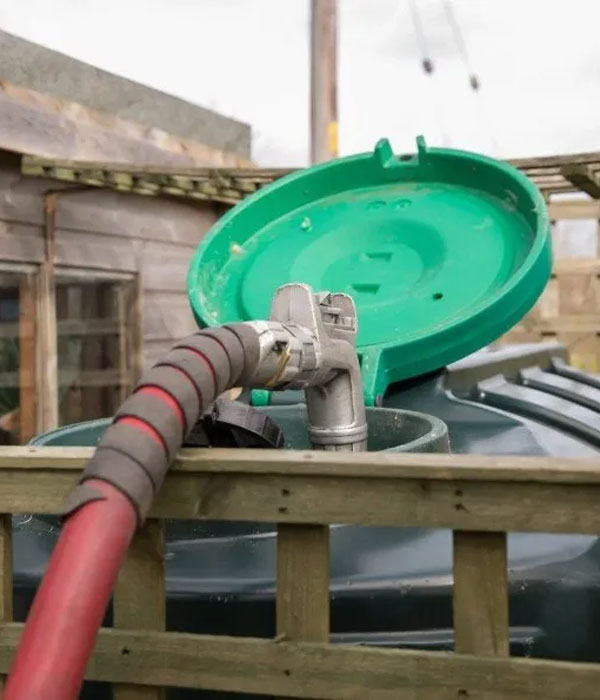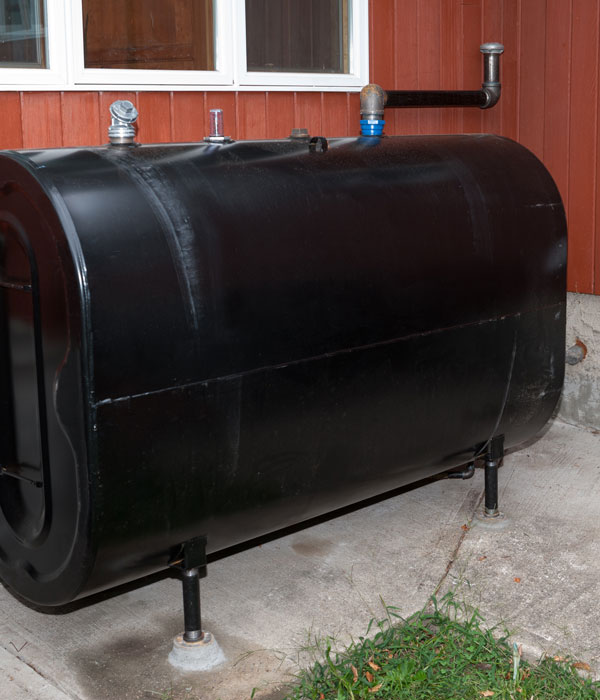Fire-Rated Oil Tanks Offer Superior Protection
Oil Tank Protection in Hampton Roads & Surrounding Areas

What Are Fire-Rated Oil Tanks?
Fire-rated tanks, also known as fire-resistant or fire-protected oil tanks, are specially designed storage solutions to minimize fire risk to your property. They are often manufactured using fire-resistant materials. Their unique construction, which includes a double wall design and thermal insulation, helps protect fuel from heat sources that could cause it to ignite. These tanks are constructed to withstand extreme temperatures. Many types of fire-rated oil tanks also include leak detection systems to alert the owner of an oil leak, preventing the potential for fires. The benefits include:
- Lowers Home Insurance Costs
- Can Be Installed Close to Your Building
- Provides You With Peace of Mind
- Enhanced Safety
Plastic Vs. Steel Fire-Rated Oil Tanks

Ways to Protect Your Oil Tanks
Fire-rated oil tanks can last for up to 30 years when properly maintained. Learn more about the tips and tricks for ensuring the longevity of your fire-rated oil tank.
- Don't Let Your Oil Tank Run Empty—It's easy to forget to refill your oil tank during the summer months when you're not relying on home heating to stay warm. Keeping your tank filled even during the summer helps to prevent bacteria build-up inside the tank and prevents leaks.
- Fuel Up When Prices Are Low—Take advantage of lower prices during the spring and summer months by filling up your oil tank. Not only will it help preserve your tank, but you'll also have peace of mind and be comfortable when the cold weather hits.
- Protect Against Vandalism and Theft—Oil tanks are often the target of vandalism and theft. However, protecting your exterior oil tank by securing it behind a locked gate, adding security cameras, and lighting it can help deter potential threats while providing you with assurance your home and property are safe.
- Routine Oil Tank Maintenance—Routine oil tank maintenance is the most convenient way to ensure the longevity of your oil tank. Bogue Oil, Inc. is here for all your maintenance needs. We can assess your system's condition and make maintenance recommendations before they lead to bigger issues.
Understanding the Pros and Cons of Oil Heating
Pros of Oil Heating
- Safety—Oil is flammable. However, it is not explosive like natural gas, making it a safer option when considering the best fuel type.
- Efficiency—Oil burns at a higher temperature to deliver consistent heating throughout your home.
- Remote-Friendly—For many, natural gas may not be available. Oil is the best option for home heating in remote locations.
- Up-Front Affordability—Boilers that run on oil are often cheaper than boilers that run on gas.
Cons of Oil Heating
- Long-Term Costs—Heating oil is more expensive than natural gas. However, Bogue Oil, Inc. offers competitive fuel prices.
- Additives—Additives need to be added to your supply of heating oil to ensure that it runs as smoothly as possible through the boiler.
- Refueling—For many who have switched, one unforeseen challenge is remembering to refill your tank.
- Frequent Maintenance—Soot and dirt build-up due to oil means your filters, chimneys, and boiler require more frequent maintenance.
